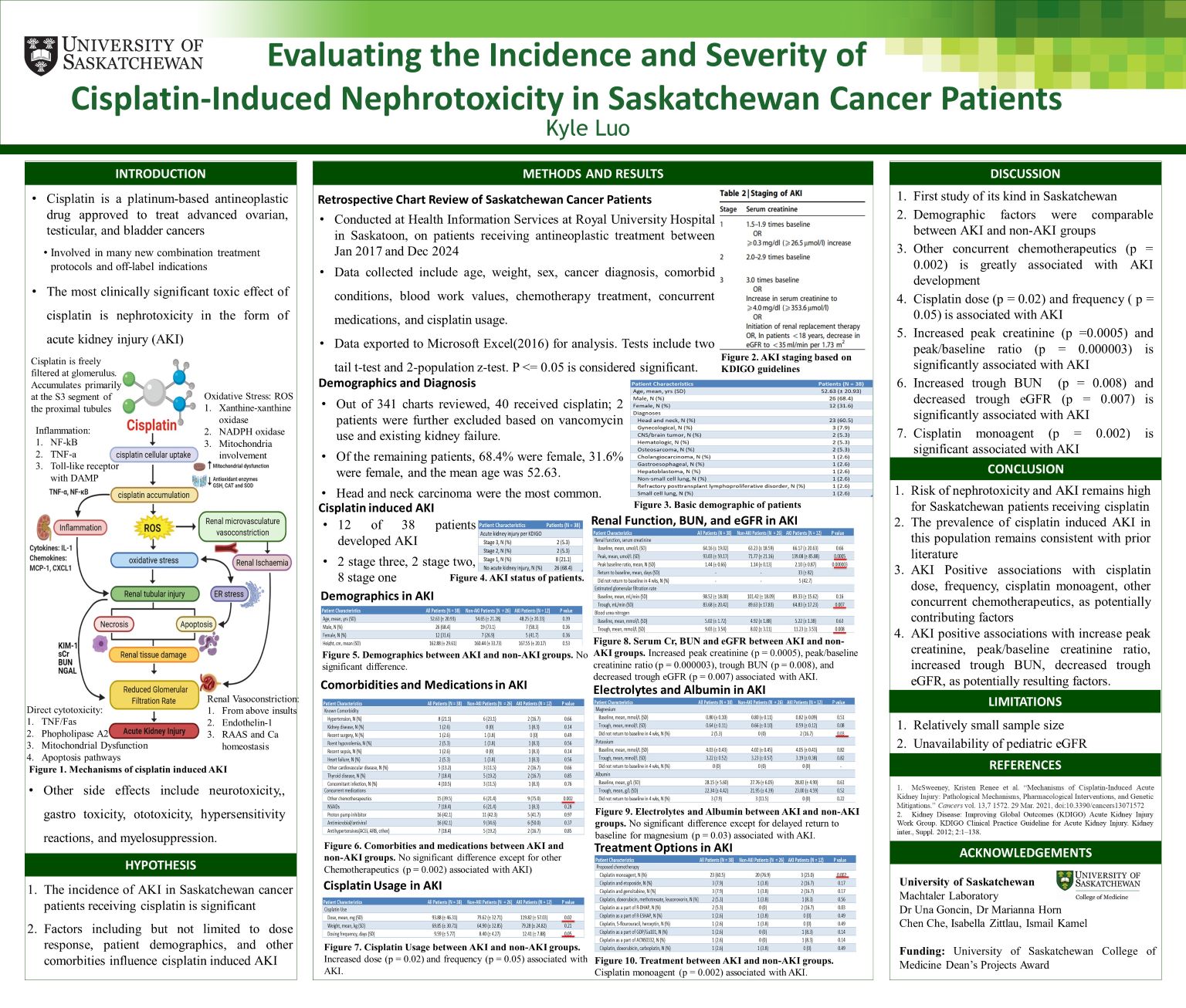
Evaluating the incidence and severity of nephrotoxicity associated with platinum-based chemotherapy in cancer patients treated in Saskatchewan
Kyle Luo
Cisplatin is a platinum based antineoplastic drug that is commonly used to treat advanced ovarian, testicular, bladder, and head and neck cancers. Nephrotoxicity in the form of acute kidney injury(AKI) is the most clinically significant toxic effect of cisplatin. Mechanism of cisplatin induced AKI includes inflammation, oxidative stress, renal vasoconstriction, and direct renal cytotoxicity. The present study hypothesizes that the incidence of cisplatin induced AKI is significant and influenced by various factors, and the purpose of this study is to evaluate the incidence and severity of cisplatin induced AKI in Saskatchewan cancer patients through a retrospective chart review. Data was collected including demographic information, diagnosis and treatment, and relevant diagnostic test information and analyzed using two tail t-test and 2-population z-test. Factors explored include dose response, treatment protocol, comorbidities, concurrent medications, and more. In conclusion, we present evidence for the incidence and severity of cisplatin induced AKI in Saskatchewan cancer patients and its association with various factors explored.
